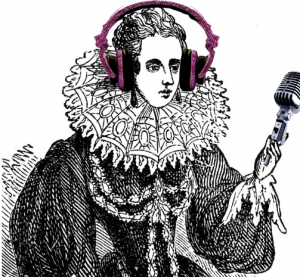Are podcasts to radio like blogs are to newspapers? That’s the question Richard MacManus of ReadWriteWeb asks in his piece “Radio Killed the Podcasting Star.” But his answer comes down clearly on the side of, “no.” He argues that, “Sadly, there are no podcasting stars – and it’s all radio’s fault.”
The crux of his argument is that there is no equivalent of the Drudge Report or Huffington Post in the podcasting world, that there is no podcast or producer that has captured significant mainstream attention that rivals established broadcasters. As evidence, he points to the top podcasts list on iTunes which is dominated by public radio, “along with semi-celebrities who already had a following via TV or radio (like Chris Hardwick and Adam Carolla).”
On the one hand, it’s hard to quibble with MacManus. I agree that the podcasting landscape is well saturated by traditional broadcasters. At the same time, I don’t think it’s fair to dismiss the success of the podcast networks built by the likes of Hardwick and his Nerdist network, Carolla and Leo Laporte with his TWiT empire, just because they all have prior public exposure and broadcast experience. While it’s true that Matt Drudge made his name strictly on the internet, the same is not true for Arianna Huffington who was a well-known TV commentator and columnist prior to starting her eponymous website. Just because someone was able to use her public recognition to jump-start a venture in a new medium doesn’t mean that the new medium is therefore lesser, or the site of less innovation.
And while what one might call “pure” blogs–sites started as blogs rather than networks and aggregators–brought success and attention to writers who had no prior visibility or fame, there are plenty of early blogs that benefited from writers’ name recognition in other venues. This is true for former Star Trek: The Next Generation actor actor Wil Wheaton as well as founders of the popular and influential boingboing, like Cory Doctorow, who had some success as a science fiction author and activist before blogging.
I also think it’s difficult to compare podcasting to blogging, even if podcasting is barely five years younger than blogging. In my opinion blogging was a truly revolutionary platform because it brought easy-to-use content management tools to the entire internet community when before they were only the domain of large publishers and commercial sites. The ability to quickly and simply publish updates to a website without having to know or use html and ftp was exactly what the web needed to propel it from being a niche medium for the technologically adventurous to being a true mass medium, permitting all users to reach a mass audience rather than just receive a mass message.
Podcasting certainly builds on this model of innovation, but producing podcasts is also still less accessible than just typing text into a box on a website and clicking publish. Furthermore, creating more polished podcasts that are more attractive to a mass audience still requires more equipment, skill and technique than writing a blog.
I also have to call into question the assumption behind MacManus’ argument, that the domination of podcast charts by established broadcasters means new independent podcasters have failed to “seriously challenge the mainstream media incumbents.” Frankly, if you use that same criteria to judge the top websites, you’ll be hard pressed to find an “indie voice” that found it’s way into the top 10 or 20 via blogging.
To me the success and value of blogging or podcasting comes from the fact that audiences are exposed to a wide variety of voices, publishers and producers who they never would have been able to find just fifteen years ago. While large corporate sites dominate the top of the rankings, it’s also very easy to find plenty of sites and podcasts that have no relationship to these behemoths and old media incumbents. These sources just simply didn’t exist in this kind of quantity, nor were they this accessible in 1997.
In fact, I’d say that mainstream broadcasters, especially public radio, moved to embrace podcasting much faster than the mainstream media embraced podcasting at the beginning of the 2000s. Frankly, there was less time for podcasting to be the unspoiled playground of the independents and misfits before the big boys moved in to both exploit and legitimize the medium.
The early years of podcasting saw countless debates about whether or not blogging was journalism, or if it could be considered a legitimate medium rather than an amateurish venue for hobbyists and cranks. There were few, if any, such arguments around podcasting. By the time podcasting birthed in 2005 the blogging debate was largely settled, with blogs winning their place at the mainstream table. Podcasting never had to go through that hazing period.
Sure, I’m excited to see podcasters reach larger audiences and find success. But I also think we don’t have to create a few new podcast stars. I’d rather see thousands more podcasts bloom and find their audiences, no matter how small or large. That’s the power of podcasting.



